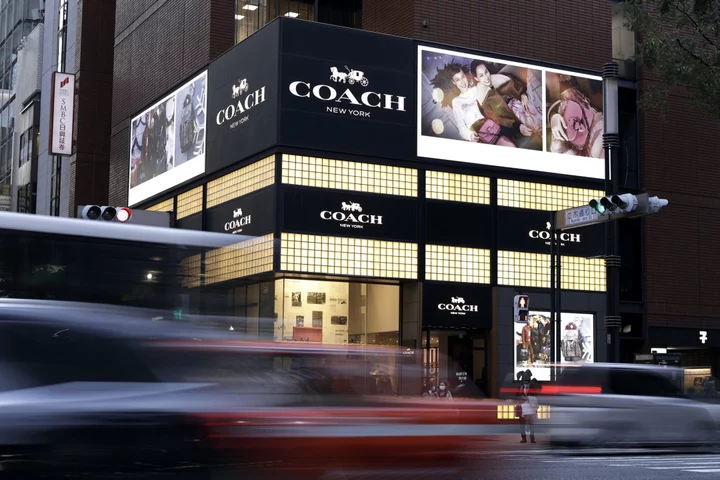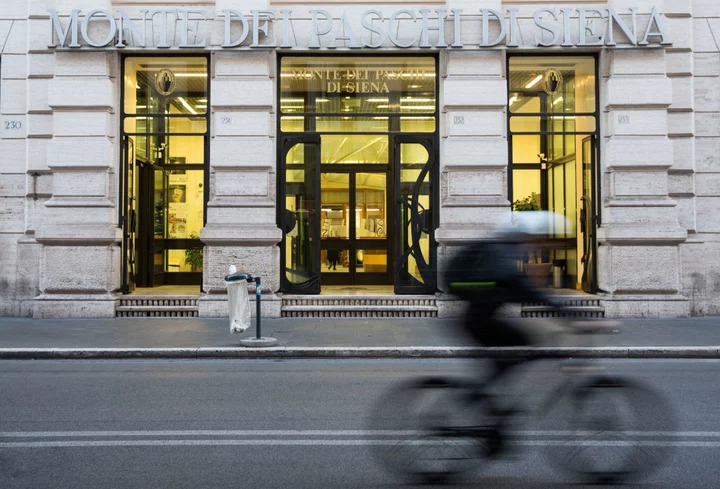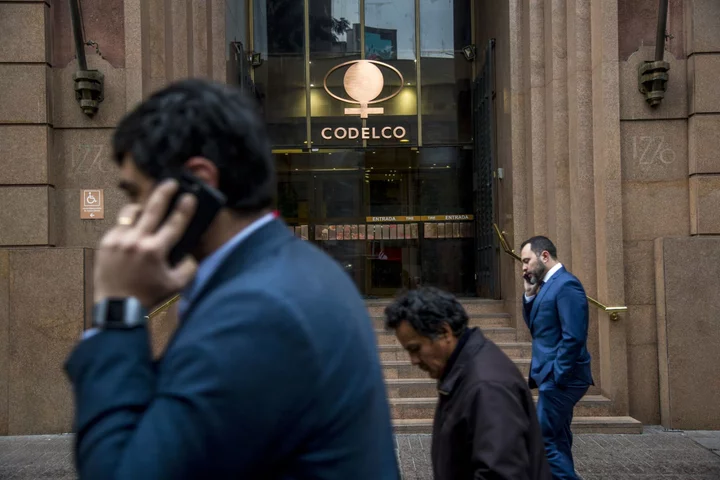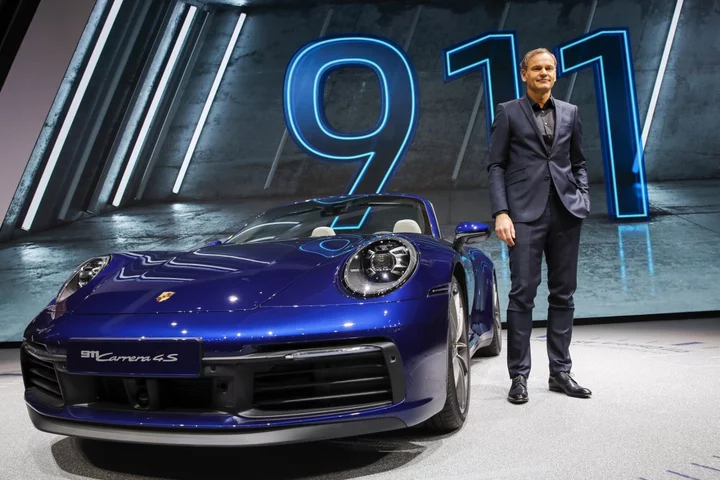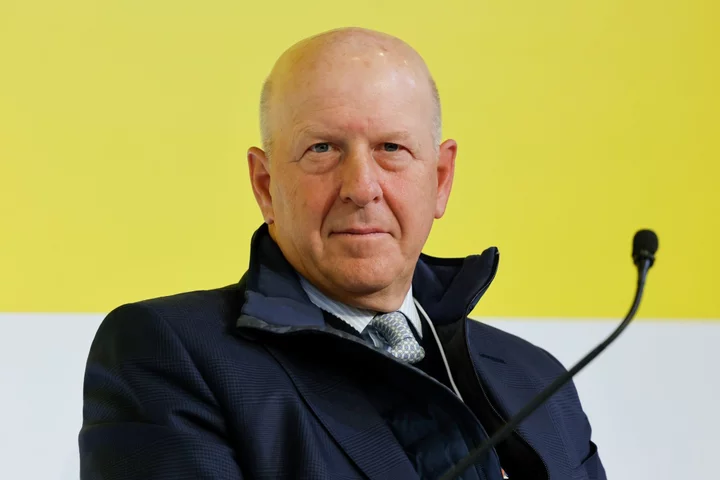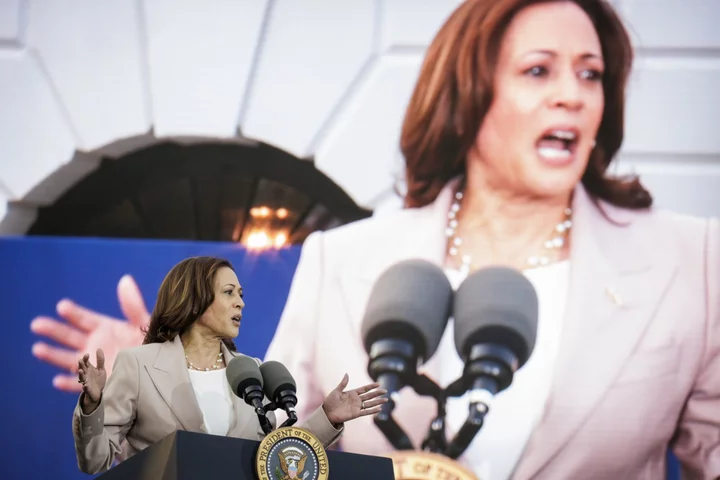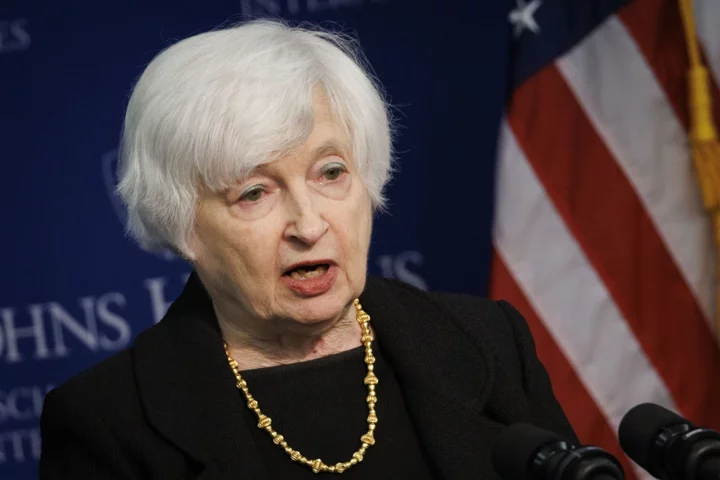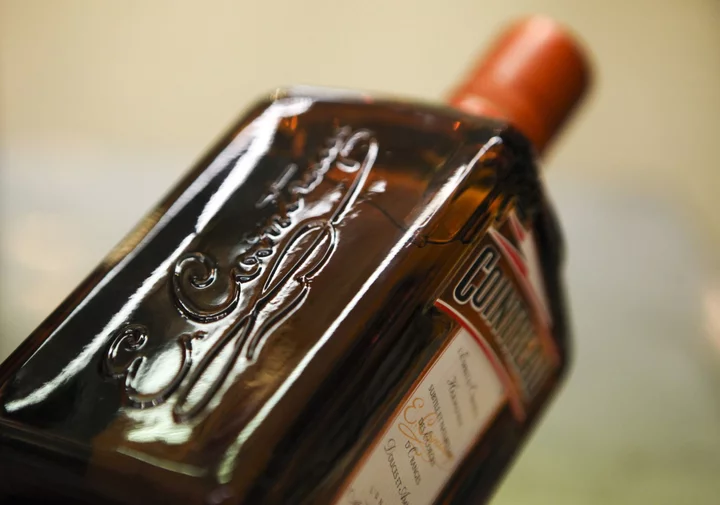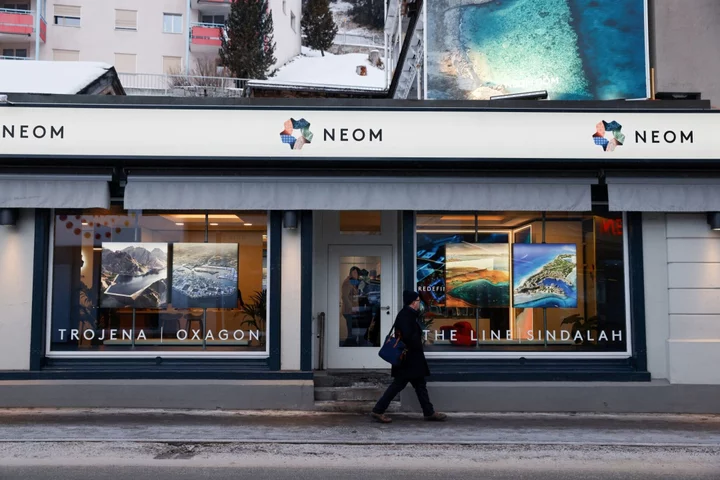Tapestry Inc., the owner of brands including Coach and Kate Spade, agreed to acquire Michael Kors parent Capri Holdings Ltd. in an $8.5 billion deal that shows the wave of consolidation in the luxury-goods sector is far from finished.
The New York-based firm is paying $57 a share in cash, according to a statement Thursday, a 65% premium over Capri’s last closing price. The transaction is expected to close in 2024, subject to approval by regulators and Capri shareholders.
“We are confident this combination will deliver immediate value to our shareholders,” Capri Chief Executive Officer John Idol said in the statement. “By joining with Tapestry, we will have greater resources and capabilities to accelerate the expansion of our global reach.”
Tapestry shares fell as much as 6% in early trading before paring their decline. Capri was up 59%.
Tapestry and Capri separately built up their own stables of high-end brands in recent years, but they’ve been no match for the breadth and depth of European luxury houses LVMH and Kering SA. The continental giants own brands that touch on an array of sectors, including apparel, ready-to-wear, jewelry, watches and alcohol.
The combination of the six brands “creates a new powerful global luxury house, unlocking a unique opportunity to drive enhanced value for our consumers, employees, communities and shareholders around the world,” Tapestry Chief Executive Officer Joanne Crevoiserat said in the statement.
Tapestry’s acquisition of Capri is an attempt to try to compete more effectively against luxury’s top players, particularly in handbags — strengths for both Coach and Michael Kors — and shoes. Tapestry owns the Stuart Weitzman footwear brand and Capri owns Jimmy Choo.
“The addition of Michael Kors cements Tapestry as the No. 1 player in the accessible luxury handbag market in the US by a wide margin,” Wells Fargo analyst Ike Boruchow wrote in a research note. The companies’ “accessible” luxury items are much less expensive than the highest-end brands, such as LVMH’s Louis Vuitton. The accessible-luxury sector has been challenged in recent quarters in the US, though, as aspirational shoppers there pull back on spending with the pandemic luxury boom waning.
China Rollout
Tapestry, whose Coach brand has been in China for decades, will likely focus on accelerating the rollout of Michael Kors in the country, which could help compensate for more sluggish sales in recent quarters on the companies’ home turf in the US. Tapestry generates around 15% of its revenue in China, while Capri makes around 6% to 8% of sales in the country.
By adding Versace to its brands, the acquisition gives Tapestry its first direct access to a European luxury marque. Capri bought Versace in 2018 and has focused on increasing the brand’s sale of handbags and other accessories, successfully boosting revenue.
The companies said there are no financing conditions attached to the deal. Tapestry has secured $8 billion in fully committed bridge financing from Bank of America Corp. and Morgan Stanley. The company expects to fund the $8.5 billion purchase price through a combination of senior notes, term loans and excess Tapestry cash, using a portion of it to pay down some of Capri’s debt.
Capri’s shares have tumbled recently as a pullback in spending by US consumers in department stores dented sales of the mass-market Michael Kors brand. The company shares had fallen around 31% in the past 12 months.
Capri, also based in New York, had been scheduled to report fiscal first-quarter earnings on Aug. 8. The company announced it would reschedule the earnings for Thursday, without explanation. The two companies are holding a joint conference call that started at 8 a.m. New York time.
What Bloomberg Intelligence Says
“Tapestry’s (owner of Coach, Kate Spade and Stuart Weitzman) plan to buy Capri (Michael Kors, Versace, Jimmy Choo) brings some savings but sizable challenges, particularly in rebuilding equity into the premium Michael Kors brand. Tapestry CEO Joanne Crevoiserat faces major hurdles ahead, though that seems to be reflected in the price of $8.5 billion in cash, which includes $3.4 billion of Capri debt.”
— Deborah Aitken, senior consumer analyst
Click here to read the research.
Luxury giants have been snapping up smaller brands even as inflation has potentially darkened the outlook for discretionary spending. Cosmetics firm Estée Lauder Cos. took over Tom Ford in a $2.8 billion deal announced last year and completed in April. Kering, which had held talks to buy Tom Ford before it was sold to Estée Lauder, agreed a deal last month for a 30% stake in fashion house Valentino for around $1.9 billion. Kering also agreed in June to acquire perfume maker Creed at an undisclosed valuation.
Meanwhile, Tapestry benefited from a stronger-than-expected rebound in China sales in the quarter ended April 1. The company expects mid-single-digit sales growth in China in its current fiscal year. Tapestry’s shares have climbed nearly 20% in the past year, valuing the firm at about $9.6 billion.
Tapestry said the acquisition will generate cost synergies of more than $200 million within three years after the closing of the deal due to supply-chain and other operating efficiencies. The new company will employ more than 33,000 people globally.
Tapestry said it’s committed to an investment-grade rating and that it anticipates reaching a leverage ratio of below 2.5 times debt to earnings before interest, taxes, depreciation and amortization within two years of the closing of the deal — a target that it will aim to maintain in the long term.
Tapestry will suspend its share buybacks to prioritize debt reduction after the acquisition. The deal will be immediately accretive to earnings per share, the company said.
(Updates with details starting in fifth paragraph.)

